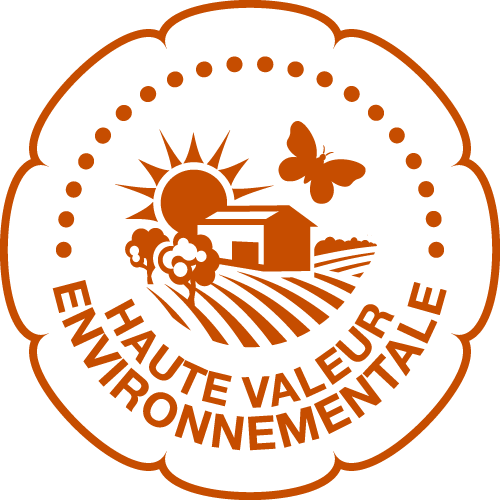The HVE label, known as High Environmental Value, corresponds to an environmental certification The initiative was taken during the Grenelle de l'Environnement to promote farms committed to practices that are more respectful of the environment and health.
Agricultural certification meets the need to identify farms whose practices preserve the natural ecosystem and reduce their pressure on the environment. The National Commission for Environmental Certification (CNCE) is responsible for monitoring the implementation of the scheme.
The HVE label criteria guaranteed by this certification include the stimulation of biodiversity, optimised phytosanitary and fertilisation strategies, as well as water resource management. The aim of this system is to unite the sectors involved and to make their approach clear to society and consumers.
Medinbio supports its partners in their HVE certification process with a unique method that can be customised according to the specific challenges of each farm through successive phases of auditing, research, experimentation, testing and deployment with training and follow-up.

Obtaining HVE certification by following the Medinbio method to create an agroecological sector
The Medinbio method is the result of innovation and collaborative work carried out with universities and research centres, industrialists and producers, with the ambition of accelerating the agro-ecological transition. It is based on a systemic approach combined with innovative products: bio-intensive agriculture. It is conceived as a third way offered to agriculture to reconcile productivity with respect for the environment and health.
The unique agroecological system approach advocated by Medinbio is based on targeted biostimulation formulated for each problem thanks to natural synergistic solutions applied at the right time. It allows a satisfactory level of protection to be obtained without the use of synthetic chemical phytosanitary products.
This agro-ecological aggregative system approach proposes to put the soil back at the heart of the concerns by using and optimising the action of micro-organisms combined with that of natural active ingredients and elicitors specific to each category of pathogen in order to trigger a cascade of virtuous systemic reactions within the plant and naturally stimulate its defence signals.
What are the steps to be taken to become an HVE certified farm?
The High Environmental Value label is based on the principles ofagroecology. The label is awarded to farms that have achieved the highest level of certification, i.e. level 3 in terms of environmental performance measured by indicators classified into four themes:
- the preservation of biodiversity in terms of both flora and fauna;
- plant protection strategy ;
- fertilisation management ;
- irrigation management.
First level of certification: compliance with the environmental and agricultural requirements of the CAP cross-compliance
This level of agricultural certification aims to verify the control and compliance of the farm with European environmental regulations. Indeed, farmers who receive state aid via the CAP undertake to comply with basic environmental requirements in the following areas
- "Environment",
- "Plant Health
- The "Good Agricultural and Environmental Conditions (GAEC)".
An assessment must be carried out so that it can be validated by a body authorised under the Farm Advisory System (FAS).
Second level of certification: compliance with a complete set of measures
This level of environmental certification aims to recognise the farmer's commitment to sustainable agriculture by assessing his farm's compliance with a comprehensive set of measures designed to minimise the environmental impact of his activity.
These 16 requirements are grouped into four themes:
- Biodiversity: the operator must be able to identify and protect areas essential for maintaining biodiversity.
- phytosanitary strategy: the farmer must ensure the targeted and rational use of phytosanitary products.
- fertilisation management: likewise with fertilisation products.
- water resource management: optimisation of water supplies is necessary.
Third level of certification: compliance with environmental performance indicators
Only farms committed to this level will be awarded the HVE label. This ultimate level of environmental certification is based on obligations to achieve results, to which farmers and sectors are subject, measured by the same environmental performance indicators. The effectiveness of this label is therefore based on verification not only of the means used but also of the concrete results obtained.
Obtaining this certification is conditional on an audit by a certification body approved by the Ministry of Agriculture and renewed every 18 months.


